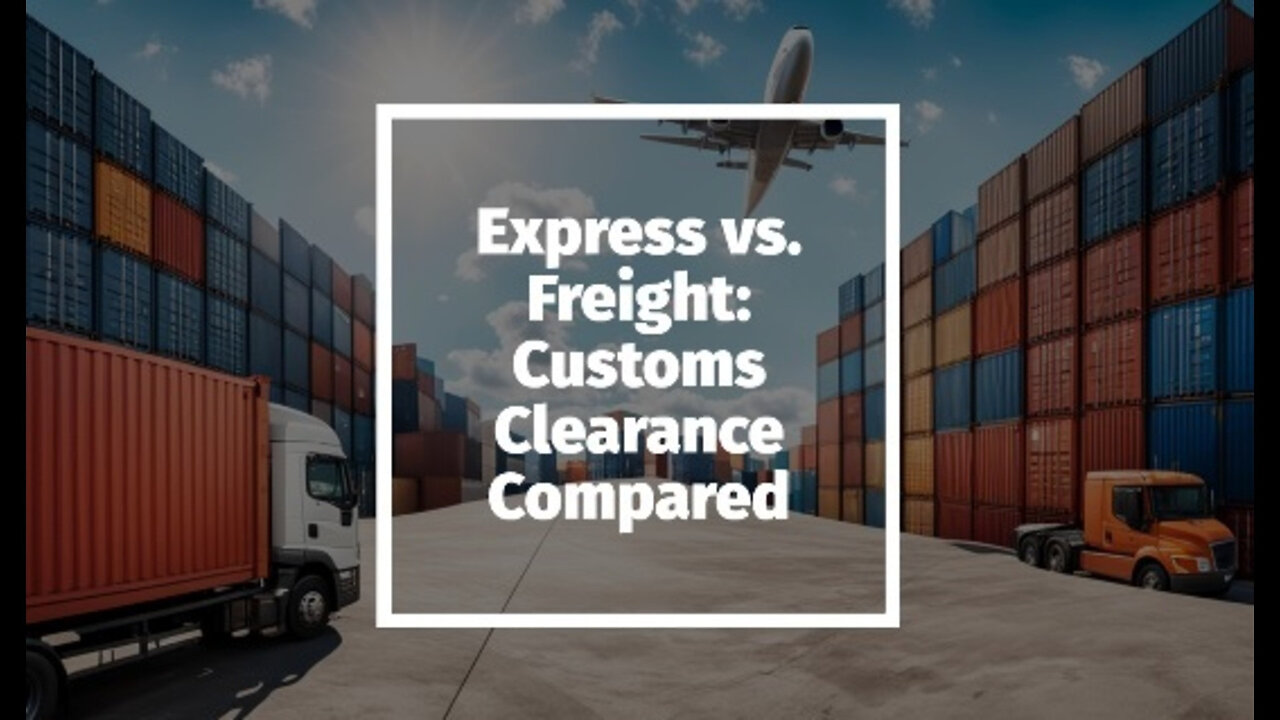Premium Only Content

Decoding Customs Clearance: Express Courier vs. Traditional Freight Shipments
ISF Template | 562-453-7357 | isf@isftemplate.com | www.isftemplate.com
In this video, we explore the differences in customs clearance processes for express courier shipments versus traditional freight shipments. Express courier shipments, consisting of small packages or documents, are handled directly by courier companies who have specialized infrastructure and expertise in customs procedures. These shipments benefit from streamlined processes, advanced electronic systems, and established relationships with customs authorities. On the other hand, traditional freight shipments involve the transportation of larger goods and require the involvement of customs brokers or freight forwarders. The customs clearance process for traditional freight shipments can be more complex and time-consuming, involving the submission of various documents and physical inspections of the goods. Certain goods, such as perishable items or hazardous materials, require additional documentation and compliance. Overall, the differences in customs clearance for these two types of shipments lie in the level of complexity, paperwork involved, and speed of processing.
#usimportbond #isfcustomsbroker #uscustomsclearing #isfentry
Video Disclaimer Here: This video is designed for education and is unaffiliated with US government bodies.
00:37 - Express courier shipments are typically small packages sent through services like UPS, FedEx, or DHL, with customs clearance handled directly by the courier company.
1:05 - Traditional freight shipments involve larger goods transported by sea, air, or land, requiring customs brokers or freight forwarders to handle the clearance process.
1:31 - Express courier shipments have faster and more streamlined clearance processes due to advanced electronic systems and established relationships with customs authorities.
2:01 - Traditional freight shipments involve more paperwork, physical inspections, and potential delays, especially for goods like perishable items or hazardous materials.
-
 20:47
20:47
MTNTOUGH Fitness Lab
19 hours agoDELAYED: Kyrgyzstan Ibex Hunt | A MTNTOUGH Original
2.29K -
 59:50
59:50
Trumpet Daily
19 hours ago $3.18 earnedThe End of the Trans-Atlantic Alliance - Trumpet Daily LIVE | Feb. 17, 2025
5.27K18 -
 52:05
52:05
PMG
10 hours agoWhat Does Freedom Cost? Steven Solomon's On-the-Ground Documentary in Ukraine
2K -
 2:38:54
2:38:54
TimcastIRL
11 hours agoElon Secret Child Scandal ERUPTS, Ashley St. Clair Story Goes Viral w/Bethany Mandel | Timcast IRL
167K107 -
 2:04:52
2:04:52
Kim Iversen
13 hours agoElon's Pumping Out Babies Like They're Tesla Model 3's | EU Panics Over Peace Talks, Wants More War
161K158 -
 1:05:35
1:05:35
Man in America
16 hours agoFort Knox & Trump’s Secret Gold Move—The Financial Reset NO ONE Is Ready For?
106K128 -
 2:21:20
2:21:20
Robert Gouveia
13 hours agoTrump Goes to SCOTUS! Judge CAVES on DOGE? Fani Willis Not Happy!
120K32 -
 20:41
20:41
Stephen Gardner
13 hours ago🔥You Won't BELIEVE What JUST Happened To Don Trump Jr.!!
128K210 -
 58:00
58:00
The StoneZONE with Roger Stone
11 hours agoEuropean Leaders Resist Trump Peace Overtures To Their Own Demise | The StoneZONE w/ Roger Stone
87.3K12 -
 9:29
9:29
AlaskanBallistics
13 hours ago $11.30 earnedWyoming Suppressors and Rifles at Shot Show 2025
107K6